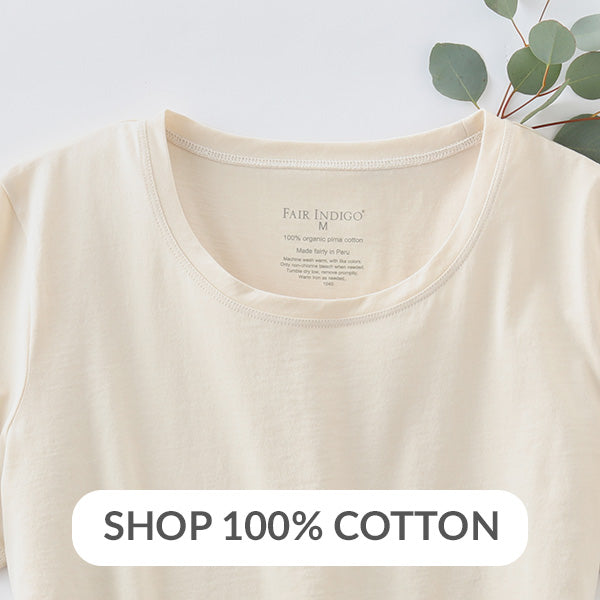The Ultimate Guide: Decoding the Battle of 100% Cotton vs. Polyester
In the world of textiles, the debate between 100% cotton and polyester has been ongoing for years. Both fabrics have their own unique properties and advantages, making it difficult to determine which one is better. In this comprehensive guide, we will delve into the intricacies of these fabrics, exploring their characteristics, benefits, and drawbacks. By the end, you will have a clear understanding of whether 100% cotton or polyester is the superior choice for your needs.
- Understanding Cotton:
Cotton, a natural fiber derived from the cotton plant, has been a staple in the textile industry for centuries. Its softness, breathability, and hypoallergenic properties make it a popular choice for clothing, bedding, and other everyday items. Cotton is highly absorbent, allowing it to wick away moisture from the body, keeping you cool and comfortable. Additionally, cotton is biodegradable and environmentally friendly, making it an excellent choice for those seeking sustainable options. - Exploring Polyester:
Polyester, on the other hand, is a synthetic fiber made from petroleum-based products. It is known for its durability, wrinkle resistance, and ability to retain color vibrancy. Polyester fabrics are often blended with other fibers, such as cotton, to enhance their properties. Unlike cotton, polyester is not as breathable and can trap heat, making it less suitable for hot and humid climates. However, its quick-drying nature and resistance to shrinking and stretching make it ideal for sportswear and outdoor gear. - Comparing Comfort and Breathability:
When it comes to comfort and breathability, 100% cotton takes the lead. Its natural fibers allow air to circulate freely, preventing the build-up of moisture and heat. Cotton is particularly beneficial for individuals with sensitive skin or allergies, as it is less likely to cause irritation. Polyester, although less breathable, offers advantages in terms of moisture-wicking and quick-drying capabilities, making it a preferred choice for athletic wear. - Analyzing Durability and Maintenance:
Polyester surpasses cotton in terms of durability and ease of maintenance. Polyester fabrics are resistant to wrinkles, shrinking, and stretching, making them ideal for garments that require frequent washing and wear. Cotton, while soft and comfortable, is more prone to wrinkling and may require ironing or steaming to maintain a polished appearance. Additionally, cotton fabrics may shrink when exposed to high heat during washing or drying. - Environmental Impact:
In terms of sustainability, 100% cotton is the clear winner. Cotton is a renewable resource, biodegradable, and can be grown organically without the use of harmful chemicals. Polyester, being a synthetic fiber, is derived from non-renewable resources and requires a significant amount of energy and chemicals during its production. However, advancements in recycling technology have made it possible to create recycled polyester, reducing its environmental impact.
Conclusion:
In the battle between 100% cotton and polyester, there is no definitive winner. The choice ultimately depends on your specific needs and preferences. If comfort, breathability, and sustainability are your priorities, 100% cotton is the way to go. On the other hand, if durability, wrinkle resistance, and quick-drying capabilities are more important, polyester is the fabric for you. Consider the intended use, climate, and personal preferences before making your decision. Remember, both fabrics have their own merits and can coexist in harmony within your wardrobe or household.

Post Comment